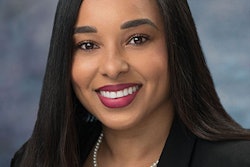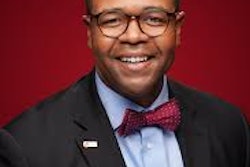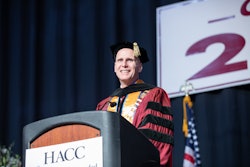
Dr. Mordecai Ian Brownlee
Is It Us? Or, is it Them?
Higher education is at an inflection point, but perhaps not for the reasons we may think. Yes, the criticality of institutional financial sustainability, academic programmatic relevance, industrial responsiveness, potential regional accreditation realities, enrollment declines, demographic evolutions, changing student preferences, and the array of impacts felt by institutions and communities served due to the reduction of federal funding are just some of the variables creating a crisis in America’s higher education system unseen in modern times. But what if America’s questions regarding the value in and trust for higher education were rooted in the country’s deep-seated concerns regarding how it views itself, which is directly impacting its views of our institutions? What if this phase we are experiencing within the higher education sector is due to moral and ethical degradation?
Defining Moral and Ethical Degradation
By definition, “moral” means relating to the standards of good or bad behavior, fairness, honesty, etc., that each person believes in. “Ethics” means the study of what is morally right and wrong, or a set of beliefs about what is morally right and wrong. The word “degradation” means the process in which the beauty or quality of something is destroyed. While the words moral and ethics differ in meaning, the two are symbiotic. Essentially, morals refer to one’s system(s) of belief, which influences individual beliefs of what is right and wrong. In comparison, ethics refer to a shared system of principles of belief, mainly determined by an external source (i.e., professional standards). The question of degradation in morality and ethics directly reflects American views based on Gallup’s recent survey analysis regarding the state of moral values in the U.S. Released in 2024, Gallup reported that Americans’ ratings of nearly all 23 professions measured in Gallup’s 2023 Honesty and Ethics poll are lower than they have been in recent years. In 2023, Gallup reported that Americans’ already poor ratings of the state of moral values in the U.S. have fallen further to the lowest point in Gallup’s 22-year trend.
The Moral Imperative of an Educator
The bottom line here is that America’s negative assessment of its state of moral values has led to an increased erosion of ethical systems that govern society and the manner in which we show care and consideration for others. Such an assessment can diminish the value we hold for others (especially in times of conflict), the empathy we show, and ultimately the humanity we display. Perhaps, this is where equity in higher education, the idea of creating bridges towards achieving rigor and resources to aid in the success of underrepresented students towards achieving the American dream, somehow became a “bad thing”. When, in actuality, equity is a beautiful gift. By no means does our care and concern for others devalue or diminish the value we hold for ourselves. As educators, our moral obligation is to care for others, create opportunities for the disenfranchised, and work daily to strengthen our country by preparing its future leaders and workforce.
I believe the effect of moral and ethical degradation runs much deeper than we originally accounted for, and failure to address it will wreak havoc on many aspects of our lives, far beyond the halls of our institutions.
Dr. Mordecai Ian Brownlee is President of Community College of Aurora.










